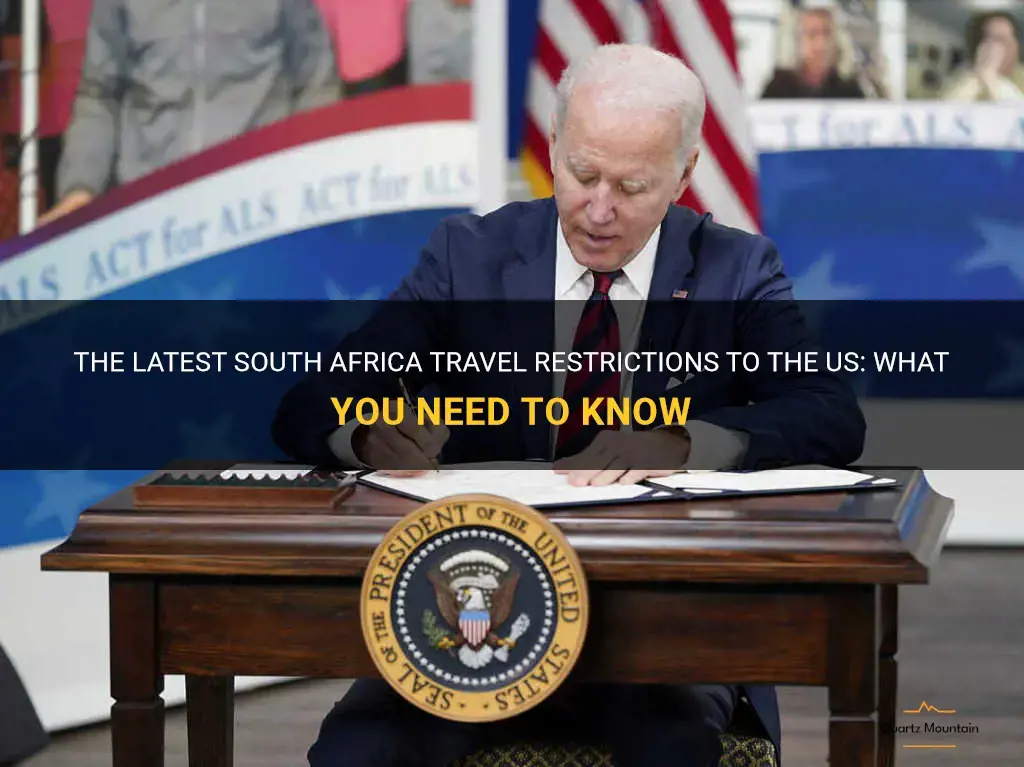
Welcome to South Africa, a land of rich cultural heritage, breathtaking landscapes, and incredible wildlife. If you're planning a trip to this diverse country, it's important to stay informed about the current travel restrictions between South Africa and the United States. As the world continues to navigate the challenges brought on by the COVID-19 pandemic, understanding these restrictions is crucial to ensuring a smooth and enjoyable journey. In this article, we will explore the latest regulations for travel between South Africa and the US, providing you with the information you need to plan your trip responsibly and confidently. So, pack your bags and let's dive into the details of South Africa travel restrictions to the US.
What You'll Learn
- What are the current travel restrictions from South Africa to the United States?
- Are there any quarantine requirements for travelers coming from South Africa to the United States?
- Are there any specific COVID-19 testing requirements for travelers from South Africa to the United States?
- Are there any exceptions to the travel restrictions for certain individuals or categories of travelers?
- How long are the current travel restrictions expected to be in place?

What are the current travel restrictions from South Africa to the United States?
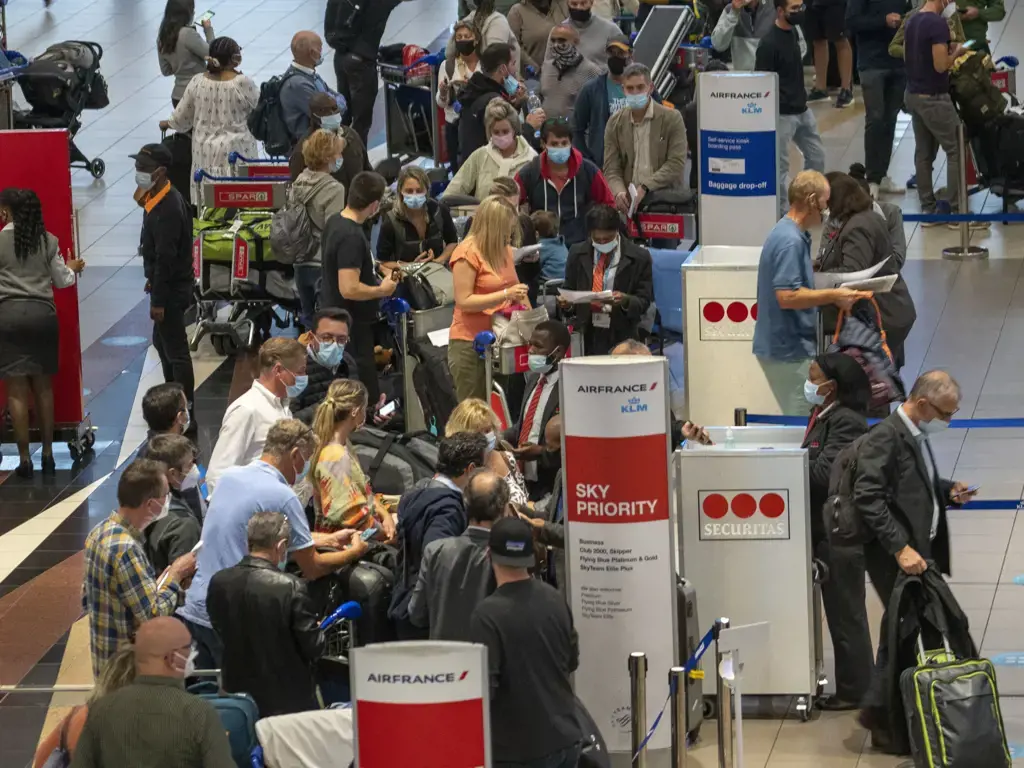
As the COVID-19 pandemic continues to impact travel worldwide, it is important for travelers to stay informed about the latest travel restrictions and guidelines. If you are currently in South Africa and planning to travel to the United States, it is crucial to be aware of the current travel restrictions in place.
As of the time of writing this article, the United States has implemented travel restrictions for travelers coming from South Africa due to the emergence of the Omicron variant of COVID-19. These restrictions are in place to mitigate the potential spread of the variant in the United States.
The current travel restrictions from South Africa to the United States include the following:
- Entry ban for foreign nationals: The United States has temporarily suspended the entry of foreign nationals who have been physically present in South Africa within the 14 days prior to their planned entry into the United States. This restriction applies to both non-immigrant and immigrant visa holders.
- Exceptions for U.S. citizens and permanent residents: U.S. citizens and lawful permanent residents (Green Card holders) are exempt from the entry ban. However, they may be subject to additional testing and quarantine requirements upon arrival in the United States.
- Testing and quarantine requirements: U.S. citizens and permanent residents arriving from South Africa are required to undergo COVID-19 testing before departure and upon arrival. They are also advised to self-quarantine for a period of 7-10 days, regardless of their test results.
- Travelers transiting through other countries: If you are planning to travel from South Africa to the United States with a layover or transit through another country, it is important to check the entry requirements of that country as well. Some countries may have their own restrictions in place for travelers coming from South Africa, which could impact your travel plans.
It is important to note that travel restrictions are subject to change at any time based on the evolving situation of the pandemic. Therefore, it is recommended to regularly check the official websites of the U.S. embassy or consulate in South Africa, as well as the Centers for Disease Control and Prevention (CDC) and the Department of Homeland Security (DHS) for the most up-to-date information on travel restrictions.
In conclusion, if you are currently in South Africa and planning to travel to the United States, it is crucial to be aware of the current travel restrictions in place. The United States has implemented an entry ban for foreign nationals who have been in South Africa within the 14 days prior to their planned entry. However, U.S. citizens and permanent residents are exempt from this ban, but may be subject to additional testing and quarantine requirements. It is important to stay informed and regularly check official sources for the latest travel information.
Pakistan Implements Travel Restrictions to the United States
You may want to see also

Are there any quarantine requirements for travelers coming from South Africa to the United States?
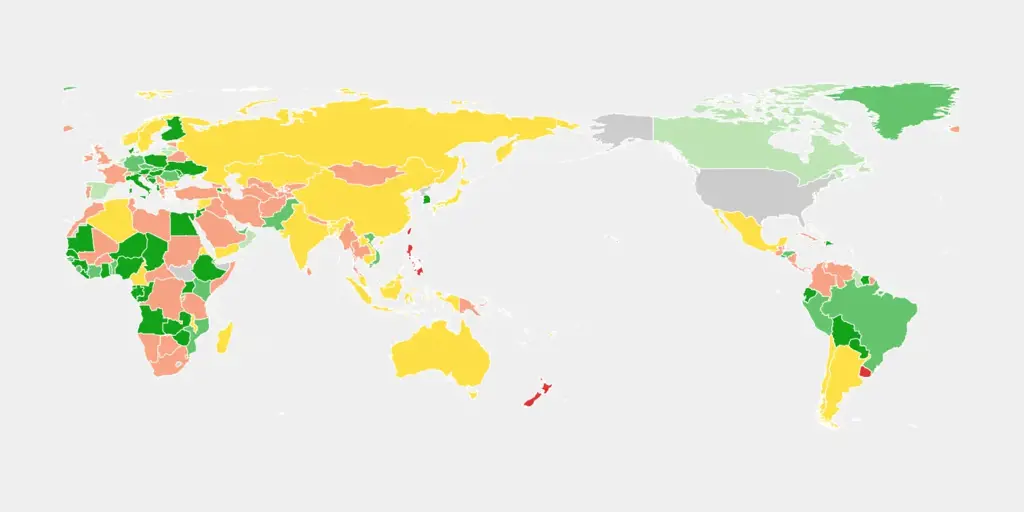
As the COVID-19 pandemic continues to evolve, many countries have implemented travel restrictions and quarantine requirements to limit the spread of the virus. This includes travelers coming from South Africa to the United States.
The Centers for Disease Control and Prevention (CDC) has issued guidelines and recommendations for international travelers entering the United States. These guidelines are subject to change based on the status of the pandemic and the emergence of new variants.
Currently, travelers coming from South Africa to the United States are subject to quarantine requirements. The CDC recommends that all international travelers, including those coming from South Africa, get tested for COVID-19 within three to five days of their departure. It is important to note that a negative test result does not exempt travelers from quarantine requirements.
Upon arrival in the United States, travelers coming from South Africa are required to self-quarantine for a period of seven days. This means staying at home or in a designated quarantine facility and avoiding contact with others. During this period, travelers should closely monitor their symptoms and seek medical attention if necessary.
In addition to the quarantine requirements, it is also recommended that travelers coming from South Africa follow other preventive measures, such as wearing masks, practicing good hand hygiene, and maintaining physical distance from others. These measures can help reduce the risk of transmission of the virus.
It is important to note that quarantine requirements may vary depending on the state or jurisdiction within the United States. Some states may have additional or stricter requirements in place. Travelers should check the specific guidelines for their destination state or jurisdiction before traveling.
Failure to comply with quarantine requirements can result in penalties or legal consequences. It is important for travelers to understand and follow these requirements to protect themselves and others from the spread of COVID-19.
In conclusion, travelers coming from South Africa to the United States are currently subject to quarantine requirements. The CDC recommends getting tested for COVID-19 before departure and self-quarantining for a period of seven days upon arrival. These measures are in place to limit the spread of the virus and protect public health. Travelers should check the specific guidelines for their destination state or jurisdiction and comply with the requirements to avoid penalties or legal consequences. By following these guidelines, we can all contribute to the containment of the virus and the eventual return to normalcy.
Connecticut Travel Restrictions: A Comprehensive List of Rules and Regulations
You may want to see also

Are there any specific COVID-19 testing requirements for travelers from South Africa to the United States?
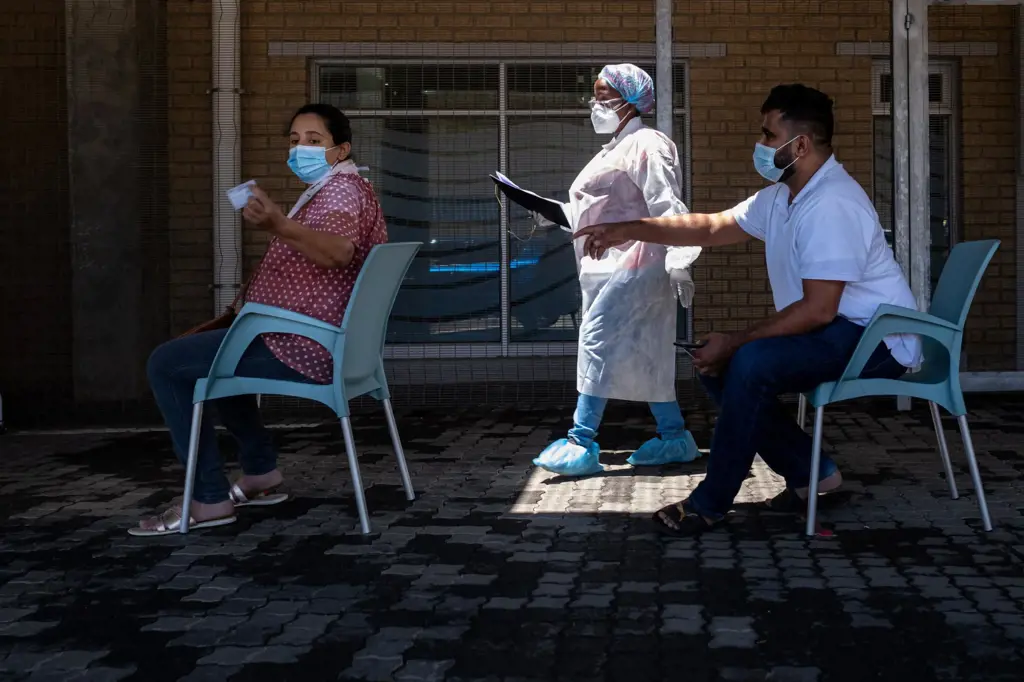
One of the key aspects of international travel during the COVID-19 pandemic is the requirement for testing. As the virus continues to spread globally, many countries have implemented specific testing requirements for travelers, in an effort to mitigate the risk of imported cases. This article will focus on the testing requirements for travelers from South Africa to the United States.
The United States has been closely monitoring the emergence of new COVID-19 variants, including the variant first identified in South Africa. To prevent the spread of these variants within its borders, the U.S. government has implemented specific testing requirements for travelers from South Africa.
Anyone flying from South Africa to the United States, regardless of citizenship, is required to present proof of a negative COVID-19 test result before boarding their flight. The test must be taken no more than 3 days before the scheduled departure time. This requirement applies to all travelers aged 2 years and older.
The accepted types of tests include viral tests such as nucleic acid amplification tests (NAAT) or antigen tests. Travelers should ensure that the test they take meets the requirements set by the U.S. government. Rapid tests, such as those conducted at airports, are also accepted as long as they meet the specified criteria.
It is important to note that antibody tests are not accepted as proof of a negative COVID-19 test. These tests detect past infection and are not indicative of current infection.
Upon arrival in the United States, travelers from South Africa may be required to undergo additional testing or follow quarantine guidelines, depending on their vaccination status and the specific state they are entering.
It is recommended that travelers keep themselves updated on the latest requirements and guidelines issued by the U.S. government and the Centers for Disease Control and Prevention (CDC) before their departure.
Failure to comply with these testing requirements can result in travel restrictions, denial of entry, and other penalties. It is crucial for travelers to plan ahead, get tested within the specified timeframe, and carry the necessary documentation to comply with these requirements.
In conclusion, travelers from South Africa to the United States are required to present proof of a negative COVID-19 test result before boarding their flight. The test must be taken no more than 3 days before departure and should be a viral test such as NAAT or antigen test. Antibody tests are not accepted. Additional testing or quarantine measures may be required upon arrival. It is essential for travelers to stay informed about the latest requirements and guidelines to ensure a smooth journey.
Exploring the Latest Travel Restrictions in Latin America
You may want to see also

Are there any exceptions to the travel restrictions for certain individuals or categories of travelers?
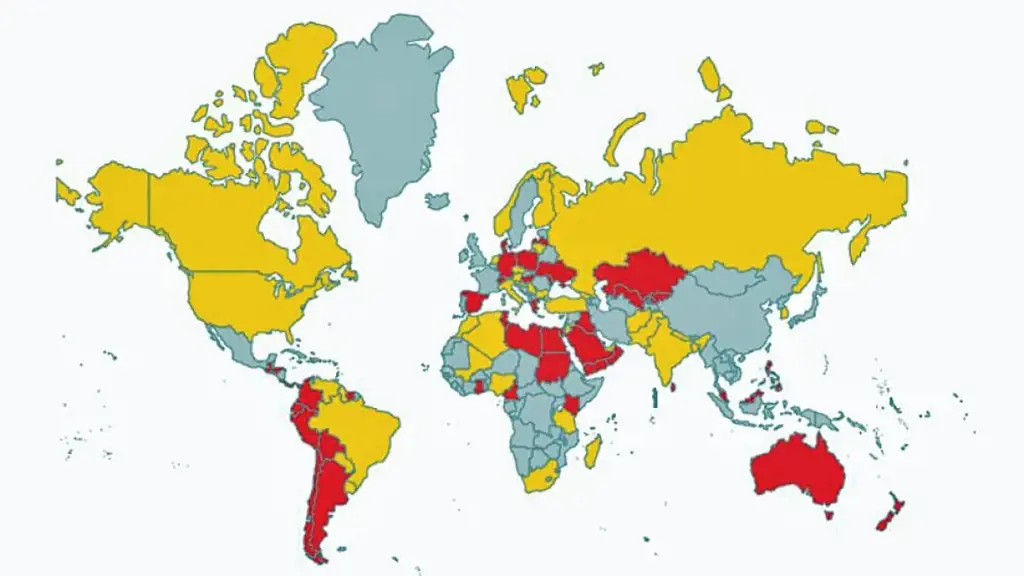
In response to the global COVID-19 pandemic, many countries have implemented travel restrictions to help control the spread of the virus. These restrictions typically limit or prohibit non-essential travel and require individuals to follow certain protocols if they do need to travel. However, there are often exceptions to these restrictions for certain individuals or categories of travelers.
One common exception to travel restrictions is for essential workers. These are individuals who provide critical services or support that is necessary for the functioning of society. Examples of essential workers may include healthcare professionals, emergency responders, transportation workers, and individuals involved in the production and distribution of essential goods. These individuals are often exempt from travel restrictions, as they are needed to ensure the well-being and safety of the public.
Another exception to travel restrictions may be made for individuals who need to travel for medical reasons. This could include individuals who require urgent medical treatment or who need to travel to access specialized healthcare services that are not available in their home country. These individuals may be allowed to travel, but they may need to provide documentation or receive approval from the appropriate authorities before doing so.
Additionally, some countries may make exceptions to travel restrictions for individuals who are returning to their home country or who have a valid reason to enter the country. For example, citizens or permanent residents may be allowed to return home despite travel restrictions, provided they follow certain protocols such as undergoing a mandatory quarantine period upon arrival.
Furthermore, travel restrictions may be lifted or exceptions may be made for individuals with diplomatic or official government business. This includes diplomats, government officials, and individuals who are traveling on behalf of international organizations. These individuals may be allowed to travel even during periods of travel restrictions, as their work is considered essential for maintaining international relations.
It's important to note that the specific exceptions to travel restrictions can vary from country to country and may change over time as the situation evolves. It is advisable to check with the relevant authorities or trusted sources for the most up-to-date information regarding travel restrictions and any exceptions that may apply.
In conclusion, while travel restrictions are in place to control the spread of COVID-19, there are often exceptions for certain individuals or categories of travelers. Essential workers, individuals with medical needs, those returning to their home country, and individuals with diplomatic or official business may be exempt from travel restrictions. However, it is essential to stay informed and follow the guidelines set by the authorities to ensure both personal safety and the well-being of the community.
Navigating Travel Restrictions: Understanding North Dakota's Guidelines
You may want to see also

How long are the current travel restrictions expected to be in place?
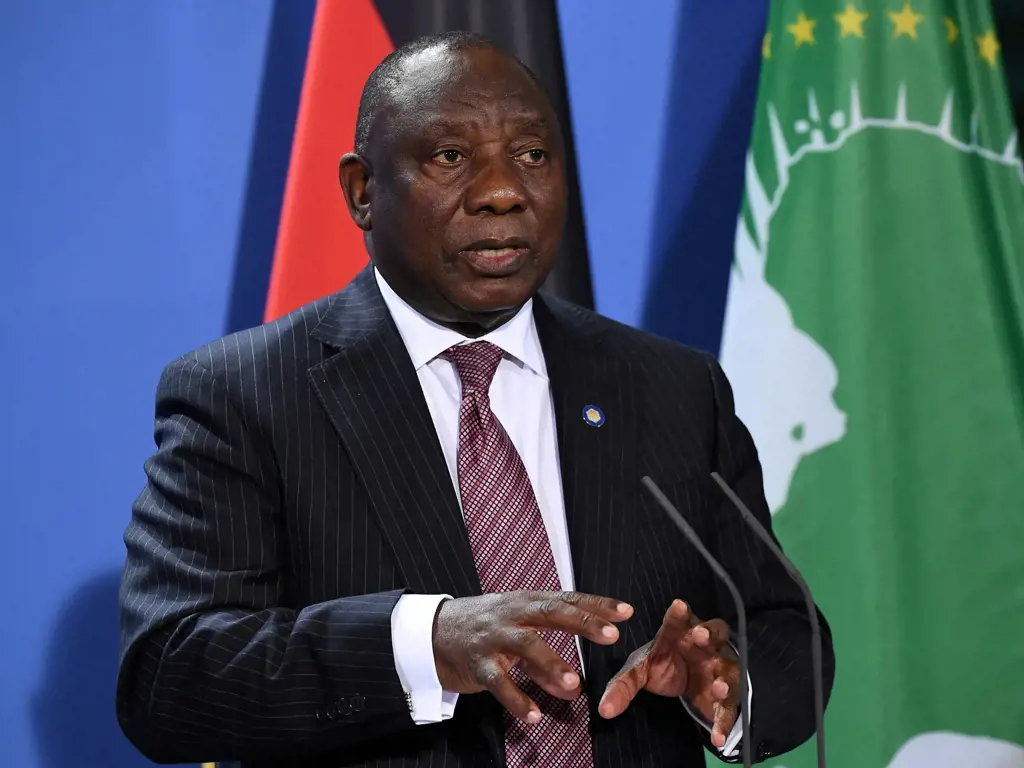
Travel restrictions have become a common occurrence in our world due to the COVID-19 pandemic. These restrictions aim to prevent the spread of the virus and protect public health. However, many people wonder how long these travel restrictions will be in place and when they can expect things to return to normal. While it is difficult to provide an exact timeline, there are several factors that must be considered when determining the duration of these restrictions.
Firstly, it is important to understand that the length of travel restrictions can vary depending on the severity of the outbreak in different regions. Countries experiencing a high number of cases and a rapid spread of the virus are more likely to have longer travel restrictions in place. On the other hand, areas where the virus is under control may lift restrictions sooner. This means that the duration of travel restrictions will likely differ from country to country and even within regions of the same country.
Additionally, the effectiveness of measures such as social distancing, wearing masks, and widespread testing will play a significant role in determining how long travel restrictions will be necessary. If these measures are followed closely and the number of cases decreases significantly, restrictions may be lifted sooner. However, if there is a resurgence of cases or lax adherence to these measures, restrictions may need to be extended or reinstated.
Another factor to consider is the availability and distribution of vaccines. Vaccination campaigns are underway in many countries, and as the population becomes immunized, the need for travel restrictions may lessen. However, it is important to note that achieving widespread vaccination coverage takes time, and until a significant portion of the population is vaccinated, travel restrictions may still be in place.
Furthermore, the emergence of new variants of the virus can also impact the duration of travel restrictions. Some variants have been found to be more transmissible or potentially associated with more severe illness. If new variants of concern continue to emerge, travel restrictions may be required to prevent their spread until more is known about their impact and effectiveness of existing vaccines.
It is worth noting that travel restrictions are not only imposed by individual countries but also by international organizations and agreements. Bodies such as the World Health Organization and the International Air Transport Association constantly assess the global situation and provide guidance on travel restrictions and requirements. The lifting of travel restrictions may also be influenced by these organizations' recommendations, as they work to balance public health measures with the need to reopen borders and facilitate travel.
While the timeline for the lifting of travel restrictions is uncertain, it is important to remember that these measures are temporary and put in place to protect public health. As the global community continues to work towards controlling and mitigating the spread of COVID-19, it is crucial for individuals to stay informed about the latest developments and follow public health guidelines to help bring an end to these restrictions sooner.
In conclusion, the duration of travel restrictions is dependent on various factors, including the severity of the outbreak, adherence to public health measures, vaccine availability and distribution, emergence of new variants, and international guidance. It is difficult to provide an exact timeline, as each region may have different circumstances and considerations. Patience and vigilance are key as we navigate these unprecedented times and work towards a future where travel can resume safely and without restrictions.
California's Health Travel Restrictions: What You Need to Know
You may want to see also
Frequently asked questions
Yes, there are currently travel restrictions in place for travelers coming from South Africa to the US. The US government has implemented these restrictions in response to the emergence of a new COVID-19 variant in South Africa.
US citizens are generally allowed to travel to South Africa, but they may be subject to certain restrictions and requirements. Before traveling, US citizens should check for any entry requirements or travel advisories from both the South African and US governments. It's also important to keep in mind that the situation can change rapidly, so it's important to stay updated on any new developments or travel advisories.
Yes, immediate family members of US citizens or permanent residents may be eligible for an exception to the travel restrictions. This includes spouses, parents, children, and siblings. However, it's important to note that each individual case will be assessed on a case-by-case basis, and certain requirements and documentation may be necessary to qualify for an exception. It's advisable to consult with the US Embassy or Consulate for the most up-to-date and accurate information regarding exceptions and entry requirements.







